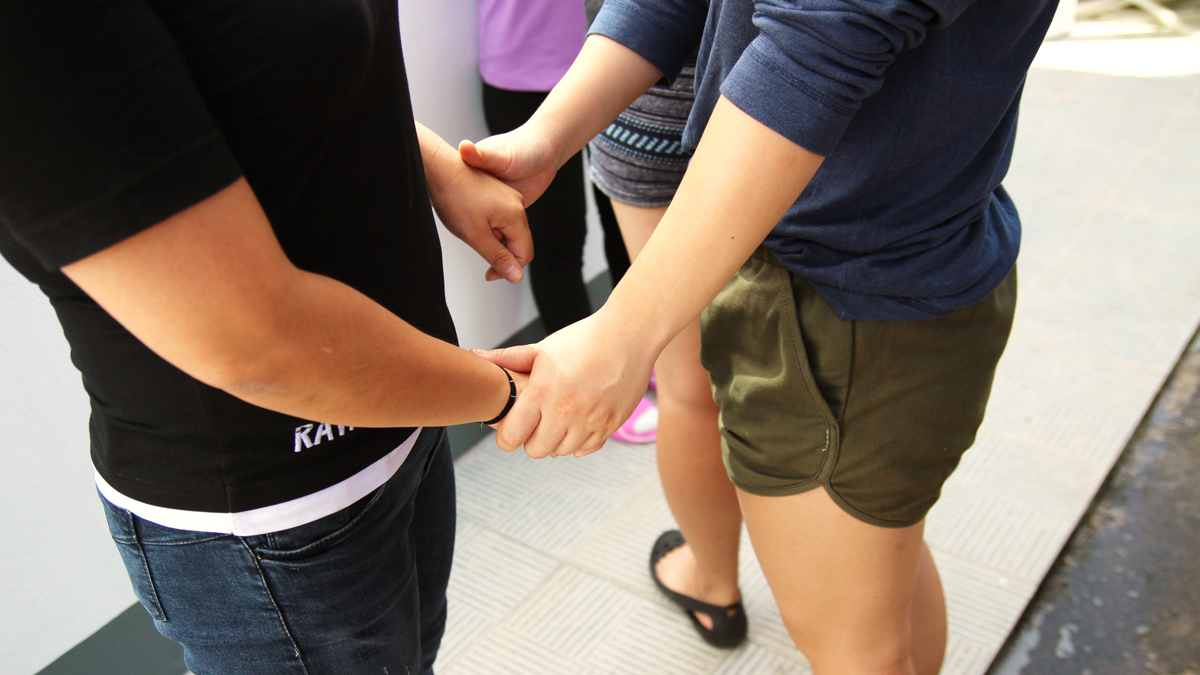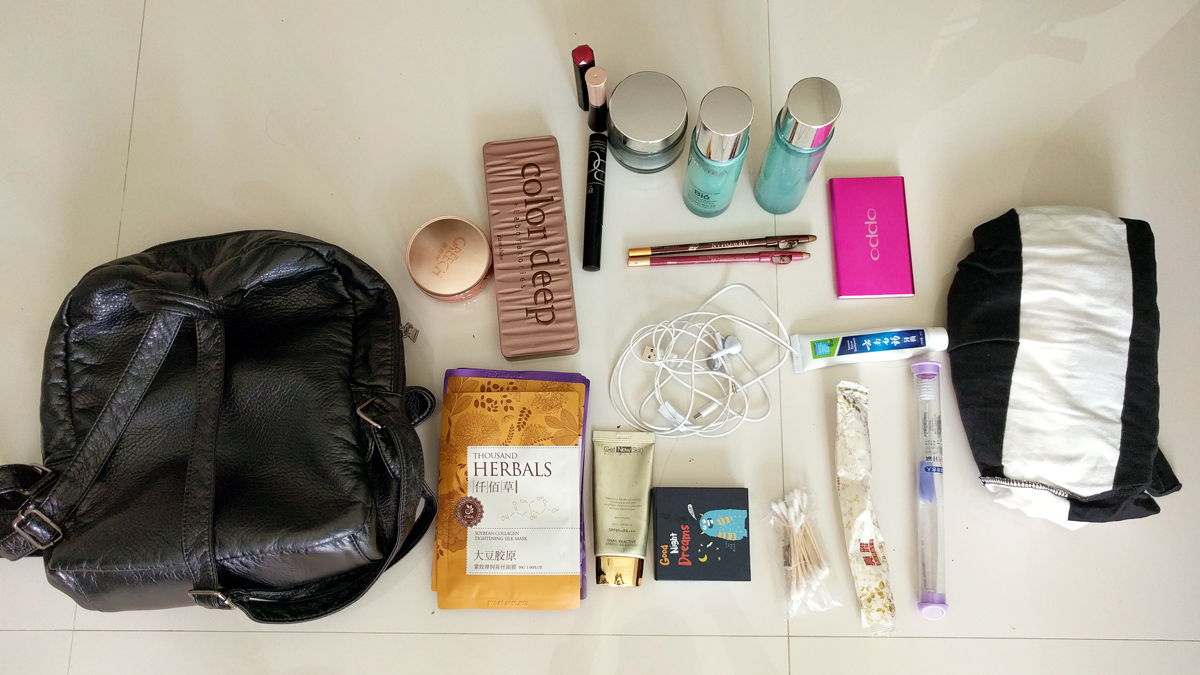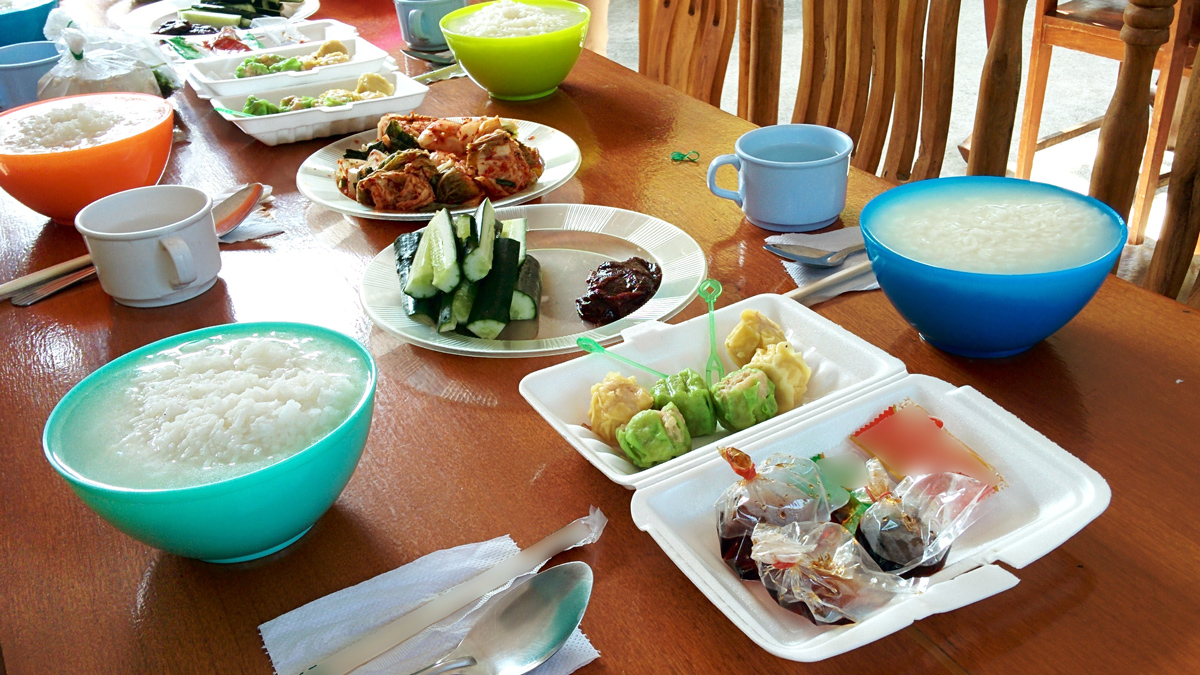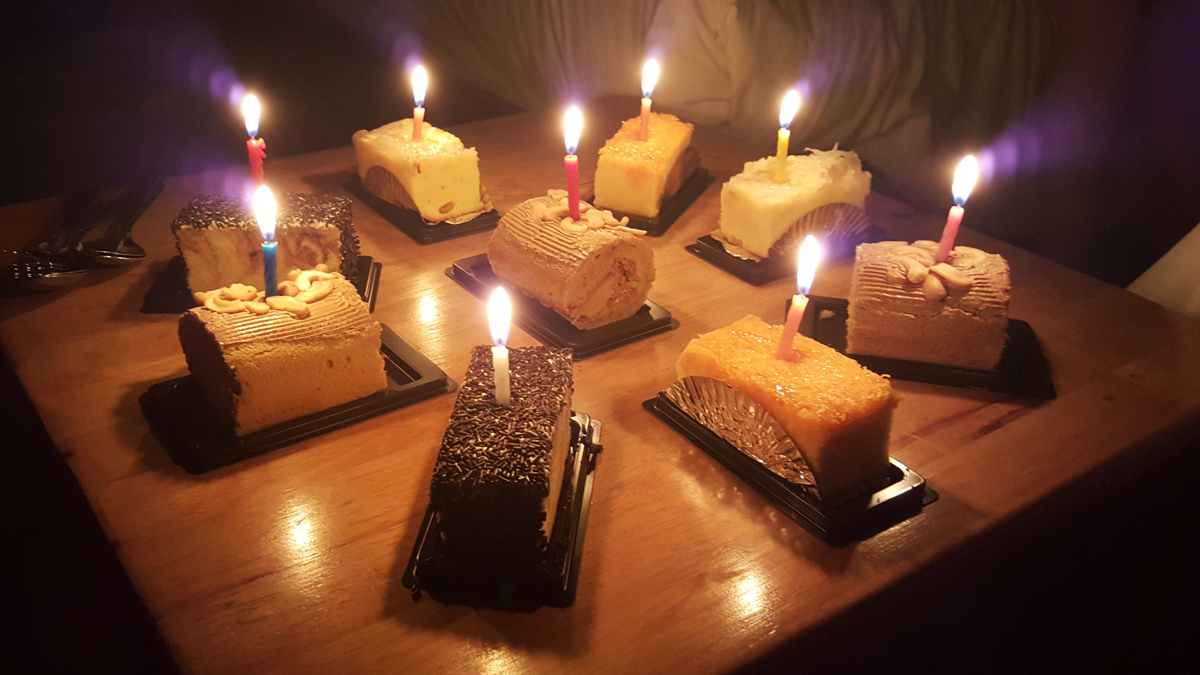Yoon Ha's Story: Part 2 - Life in China

This is the second part of a three-part story. Read part one about the hardships Yoon Ha experienced growing up in North Korea that led her to escape. Part three follows this part with her experience resettling in South Korea.
The couple who helped me escape into China brought me to a house that same night after we crossed the river. There they told me about my options. They said I could work in a restaurant somewhere in China. However, there would be a high risk that I would be caught by the Chinese police and get sent back to North Korea. I already knew that if you get sent back to North Korea from China, you could be severely punished by the North Korean regime.
They said there was another way, which would be safer; I could "marry" a Chinese man. They told me my Chinese husband would protect me from getting caught by the Chinese police. So it seemed that this was the best choice I could make. I had already come to China and I didn’t want to go back to North Korea. I was prepared to do anything to have a better life, so I told the couple that I would live with a Chinese man.
The next morning the couple took me to a car and we started driving.
In the car, I started getting scared. The only thing I knew was that I was going to live with a Chinese man I had never met, and I was just hoping that my life would somehow get better through the marriage. After driving for a while, we arrived in a small city in China. There I met some Chinese people who turned out to be family members of the man I would marry.
I saw one of them give money to the couple who had brought me there. It was then that I realized that I had been sold.

A part of me still felt I could do anything to have a better life. But it didn’t feel good to be sold like an object. Even to this day, there are so many North Korean women being trafficked like I was. This kind of trafficking is now an industry.
I also felt selfish for leaving my mother and sister without letting them know. I came all this way so that I could have a better life, but I missed them a lot. I didn’t know what would happen next or how the Chinese man would treat me. At that point, I wanted to run away, but it was too late and there was nowhere to go. It was a small town in the country and I didn’t know anything, including the Chinese language.
Without having a proper wedding, I started living with the Chinese man - I don’t even want to call him my husband. It was frustrating not knowing any Chinese. And since I was sold into the marriage, I didn’t love the man. So it was really hard for me to live with him.
Despite all of this, I would eventually have my first daughter with him.
He and his family farmed for a living and were very poor. His family didn’t treat me well. They made me do all sorts of hard work on the farm and they would say bad things about me. Sometimes I even got hit. I wasn’t familiar with the area and couldn’t speak the language very well for the first couple of years. And there was always the danger of getting caught by the Chinese police and sent back to North Korea.
I cried a lot whenever I was by myself. I knew I had to keep enduring it for my daughter but it was so tough.

I started hearing from some people around me that I could live safely and freely if I could make it to South Korea. I didn’t want to leave my daughter, but I couldn’t keep living this life without freedom. So I decided to run away, hoping that I could come back for my daughter later.
I soon discovered that it would cost me a lot of money to find people who could take me to South Korea. I had no money, so I ended up getting sold to another Chinese man in order to survive.
Living with the second Chinese man was even worse than with the first one. I still had to do a lot of hard farming work and he was always watching me. He was suspicious that I was going to try to run away. When he went to work he brought me to his workplace so he could still watch me. And he was not kind to me. Whenever I got sick, he didn’t care.
I felt so unloved and suppressed.
Soon, I was pregnant with my second daughter. All the while, my desire to go to South Korea kept growing. I thought about giving up on my unborn daughter, knowing that I couldn’t be a good mother to her while living like this in China. And I knew it would be even harder for me to leave after I gave birth to the baby. But I didn’t want to leave another child of mine for my own freedom.

After hearing from some people that I could raise my child with support from the government in South Korea, I started having hope. I dreamt about living there with my baby. So I looked for opportunities to run away from the second Chinese man, even though he was always watching me. At some point, I met another North Korean woman who lived in my town and who had also been sold into a marriage. She said she could connect me to people in a different city who could help me go to South Korea.
When I was eight months pregnant and my stomach was so big, the Chinese man didn’t watch me as much as he had before. Maybe he thought my body was too heavy to run away. So one day I left home, telling him that I was going to my friend’s house. But actually, I was going to another city to meet people who would connect me to LiNK’s network.
When I was about to leave the town, however, I got caught by the Chinese man. He made me sit behind him on his motorcycle and was taking me back to his house. Riding on the back of the motorcycle, my hat got blown off my head by the wind. I asked him to stop so I could pick it up. It was my favorite hat. He said, “No, we aren’t going to stop. Forget about the hat.”
At that moment, my whole heart and body were telling me, “Do not give up on what you deserve. You deserve to have a simple hat and you deserve to live in freedom like a human being.”

I don’t know how I did it but I jumped off the motorcycle while it was moving. Luckily he wasn’t going too fast and I landed on my back so the baby didn’t get hurt, and I was okay other than scratching my forehead while rolling on the ground.
I got up and started walking toward where the hat fell. The man asked me where I was going and I told him that I was going to get my hat. His motorcycle had lost balance and fallen after I jumped. He didn’t even ask how I was as he started to inspect it for damage. I realized this was my opportunity to run away again. So I grabbed my hat and started running up into the nearby mountains.
I kept going up and up until I was near the top where I could see the road, the man, and his motorcycle. I hid there for a few hours, scared of getting caught by him again. I actually saw him driving around to find me. So I climbed further up and over the other side of the mountain.
Being eight months pregnant, my body was very heavy. But I had to keep moving to get away from the man. I made it over the mountain.
I started heading to the city by taking different vehicles. One time I got on a truck that was transporting dogs. Since all the space was taken by the dogs, I had to sit on one of the guys’ laps in the front seat.
Finally, after some long bus rides that made me feel sick, I connected with LiNK’s network.
Continue reading with Part 3.
Women’s History Month: Honoring the Bravery of North Korean Women
By: Jennifer Kim
Jennifer* is Liberty in North Korea’s Field Manager. Over the years, she’s carefully stewarded our secret rescue routes and helped countless North Korean refugees reach safety and freedom.
Approximately 70% of North Korean defectors are women. Throughout their journey, they face unimaginable challenges, including human trafficking, confinement, and sexual violence.
For Women’s History Month this year, we asked Jennifer to share her experiences supporting North Korean women who have made the brave decision to escape, and bring light to the stories of real people behind the numbers and statistics.

A Transformative First Mission
When I first began this line of work, I was filled with both excitement and anxiety. “Will I be able to connect well with these people?” “Will the field be too dangerous?” Even in my position as a staff member, there were times when the situations we encountered felt riskier because I was a woman.
On my first mission, the group we brought to safety were all women. From their small requests, like asking for sanitary pads, to moments where they cautiously shared their harrowing experiences of human trafficking in China, I found that we could connect on a deeper level because I was also a woman. I realized my role wasn’t just to be a staff member, but to stand by these people as they needed me, as a fellow woman. From then on, the fear I had initially felt about this work transformed into conviction.
North Korean Women At the Forefront of Resistance and Survival
After meeting many North Korean women defectors, I’ve come to learn that there are unique challenges and experiences that only they face. Women in North Korea are not as restricted to job assignments as men, so they’re the ones actively engaged in informal economic activities. They’re running their own black-market businesses and trading smuggled goods, shifting economic power from the regime into the hands of the ordinary people.
Women also make up the majority of North Korean defectors at over 70%. In freedom, they’re leading advocacy efforts and raising awareness for this issue.
I've come to think that perhaps women in North Korean society were the first and most desperate to stand up in resistance.

At the same time, the reality is that women are more vulnerable to gender violence and crime. The moment they cross the North Korean border and set foot on Chinese soil, their precarious legal status and the fact that they are women become risk factors that can lead to human trafficking, sexual exploitation, and forced prostitution. If these dangerous situations lead to pregnancy and childbirth, women often remain in China for years, even decades, weighed down by the conflicting emotions of their longing for freedom and their maternal instincts.
All of the women I met during my first rescue mission were survivors of being trafficked into forced marriages. While there are some cases where these women meet kind families and live in a relatively less dangerous environment, most have to endure difficult lives. One woman who we rescued in 2024 said that in the early stages of her life in China, she was confined and tied up in a single room by the man who bought her. Others had to do forced labor in one of China’s many factories.
Not a News Story, But a Person’s Story
About ten years ago, I watched a video of a woman my age testifying about the hardships and sexual violence she experienced during her defection from North Korea. As a South Korean, I couldn't believe that such things were happening just across the border. Shocked and ashamed of my indifference, I cried for a long time, then resolved to do something.
North Korea used to be something I only saw and heard about through a TV screen. Now those distant news stories have become the personal experiences of the North Korean mothers and friends I’ve met in the field.
At first, I simply wanted to help as best I could. But as time went on and I met more North Koreans, my perspective gradually changed. Now, I feel like I'm not so much ‘helping’ as I am meeting incredible superwomen who have overcome tremendous adversity.
My role is to constantly remind them of their resilience and potential, so they don't forget it themselves.

“This is My First Time Being Treated Like a Queen”
After a successful mission, our team ensures our newly arrived North Korean friends have a proper meal, get some rest, and receive basic necessities. On one occasion, one woman told me, “This is the first time in my life that I have been treated like a queen.”
She had just reached freedom after ten years in a forced marriage to a Chinese man. Her words resonated with me deeply. I realized once again that our work isn't simply about helping people achieve physical freedom; it's about restoring a person's forgotten dignity.
That woman has since resettled in South Korea and runs a small shop. She’s continued to stay in contact with LiNK, sharing updates about her life. One day, she shyly announced her marriage. She’s starting a new chapter with a person she chose and wanted.

Walking Together In Solidarity
Through the friendships I’ve made and stories I’ve witnessed in the field, my connection to this issue has deepened over time. These women aren’t just “nameless” North Koreans, but people like us, living their daily lives; someone’s daughter, sister, or mother. I didn’t set out to do this work for over a decade. But day by day, hearing each story, meeting each person, and holding their hands has naturally led me down this path.
Listen to their stories, and I believe that you too will encounter a heart for the North Korean people.
– Jennifer Kim, LiNK Field Manager
*Jennifer is a pseudonym used to protect our field manager’s identity and avoid compromising this work.

Help North Koreans Win Their Freedom
From inside the country to on the global stage, North Korean women are driving change on this issue. Driven by necessity, desire to care for their loved ones, and aspirations to forge their own path in this world, their pursuit of freedom is both intentional and instinctive.
Liberty in North Korea doesn't just extend a helping hand to North Korean refugees—we’re cultivating the next generation of North Korean leaders, entrepreneurs, and advocates, and doing this work alongside them.
Become a monthly donor today at $20 per month to help more North Koreans reach safety and gain full authorship of their lives in freedom.




